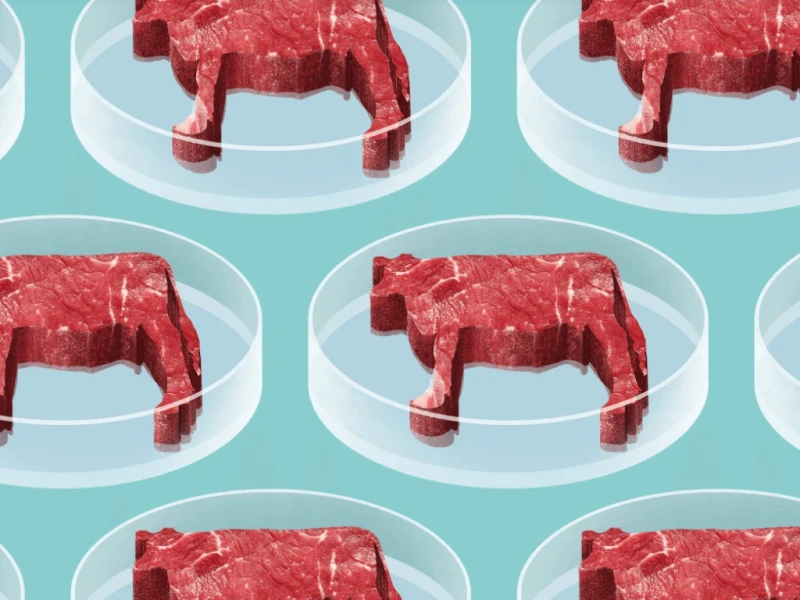Consistent global regulations essential to bring cell-based meat into the mainstream
Consistent global regulations essential to bring cell-based meat into the mainstream


Singapore’s historical approval of cell-based meat late last year spurred industry momentum, but there remains a lack of clarity on global regulations, said Harini Venkataraman, PhD, analyst at Lux Research and author of [a new] report.
“I’d say that until 2020, cell-based meat was up in the air, maybe a fantasy and not a commercial reality,” Dr. Venkataraman said. “What happened with Singapore’s approval is that it opened the doors for other countries to really think about it and start looking at the commercial angle.”
The United States has been one of the leading countries in terms of thinking about cell-based regulation, Dr. Venkataraman said. An important development came in 2019, when the US Department of Agriculture and the Food and Drug Administration released a formal agreement to create a joint regulatory framework for cell-based meat product approval.
…
In the European Union, cell-based meat will be regulated as part of the EU’s Novel Food Regulation published in 2018. While this streamlined process allows for EU-wide approval, it requires at least 18 to 24 months.
“Although countries like Singapore and Israel have favorable regulatory landscapes, these small markets will not be enough for widespread adoption and market penetration,” Dr. Venkataraman said. “Larger nations will need to remove regulatory barriers to unlock a mass market.”
Read the original post

 | Videos | More... |

Video: Nuclear energy will destroy us? Global warming is an existential threat? Chemicals are massacring bees? Donate to the Green Industrial Complex!
 | Bees & Pollinators | More... |

GLP podcast: Science journalism is a mess. Here’s how to fix it

Mosquito massacre: Can we safely tackle malaria with a CRISPR gene drive?

Are we facing an ‘Insect Apocalypse’ caused by ‘intensive, industrial’ farming and agricultural chemicals? The media say yes; Science says ‘no’
 | Infographics | More... |

Infographic: Global regulatory and health research agencies on whether glyphosate causes cancer
 | GMO FAQs | More... |

Why is there controversy over GMO foods but not GMO drugs?

How are GMOs labeled around the world?

How does genetic engineering differ from conventional breeding?
 | GLP Profiles | More... |

Alex Jones: Right-wing conspiracy theorist stokes fear of GMOs, pesticides to sell ‘health supplements’




 Viewpoint — Fact checking MAHA mythmakers: How wellness influencers and RFK, Jr. undermine American science and health
Viewpoint — Fact checking MAHA mythmakers: How wellness influencers and RFK, Jr. undermine American science and health Trust issues: What happens when therapists use ChatGPT?
Trust issues: What happens when therapists use ChatGPT? Fighting deforestation with CO2: Biotechnology breakthrough creates sustainable palm oil alternative for cosmetics
Fighting deforestation with CO2: Biotechnology breakthrough creates sustainable palm oil alternative for cosmetics Viewpoint: Video — Big Solar is gobbling up productive agricultural land and hurting farmers yet providing little energy or sustainabilty gains
Viewpoint: Video — Big Solar is gobbling up productive agricultural land and hurting farmers yet providing little energy or sustainabilty gains California, Washington, Oregon forge immunization alliance to safeguard vaccine access against federal undermining
California, Washington, Oregon forge immunization alliance to safeguard vaccine access against federal undermining 30-year-old tomato line shows genetic resistance to devastating virus
30-year-old tomato line shows genetic resistance to devastating virus The free-range chicken dilemma: Better for birds, but with substantial costs
The free-range chicken dilemma: Better for birds, but with substantial costs ‘You have to treat the brain first’: Rethinking chronic pain with Sanjay Gupta
‘You have to treat the brain first’: Rethinking chronic pain with Sanjay Gupta
